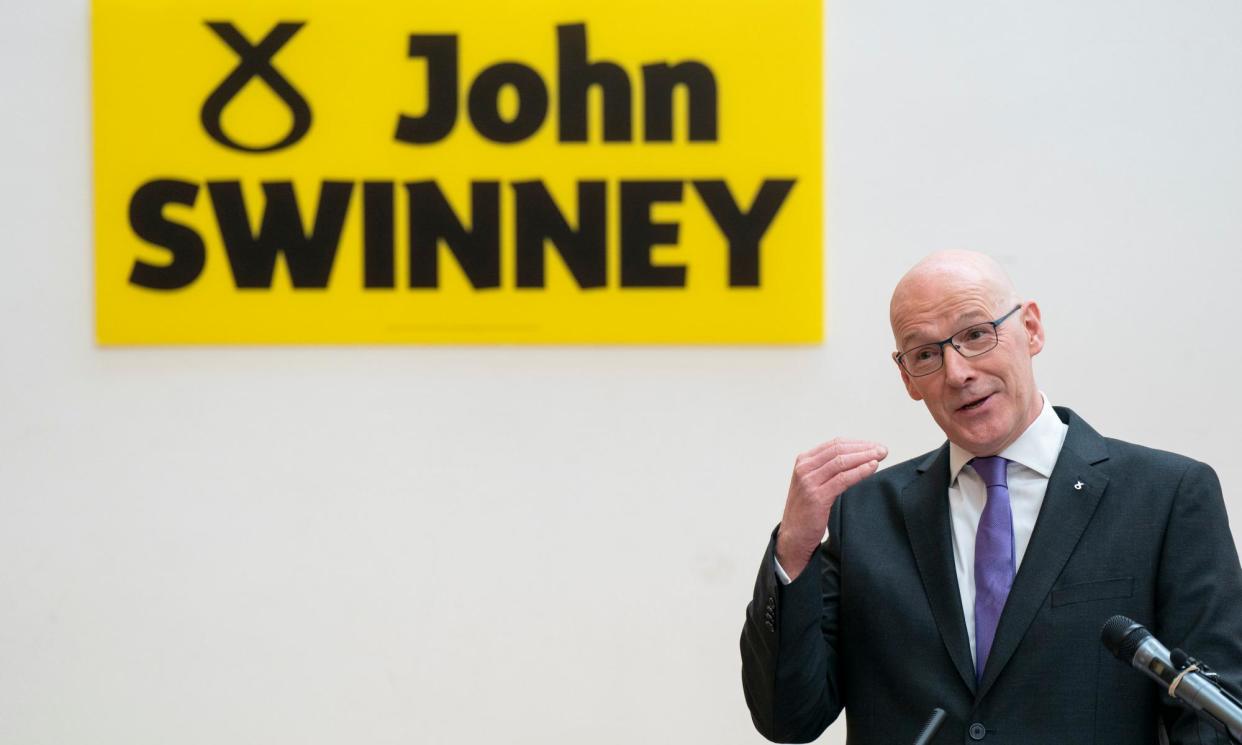John Swinney becomes SNP leader after rival drops out

John Swinney, one of the Scottish National party’s most experienced and longest-serving politicians, is on the verge of becoming the first minster of Scotland after he was chosen as the party’s new leader.
Nominations for the role, vacated by Humza Yousaf last Monday, closed at midday on Monday. With no other contenders for the role, the SNP’s national secretary, Lorna Finn, confirmed just after midday that Swinney was the new leader.
Before a speech in Glasgow due on Monday afternoon, Swinney said he was “deeply honoured” to lead the SNP and promised: “I will give all that I have to serve my party and my country.”
A last-minute threat to Swinney’s coronation was averted late on Sunday when the SNP activist Graeme McCormick chose to back Swinney after a “lengthy and fruitful conversation”, despite claiming he had reached the nomination threshold of 100 signatures from 20 different branches.
McCormick’s supporters had argued it would have been undemocratic for the party’s leader to win without a contest.
On Monday morning the depute leader, Keith Brown, denied that McCormick – a longtime leadership critic who told the party’s conference last year that the SNP’s independence strategy was “flatulence in a trance” – had been “leaned on” to pull out of the race.
Last week Kate Forbes, the former finance secretary who came close to winning the SNP leadership last year, ruled herself out of the contest and backed Swinney, saying she was persuaded by his pledge to “govern from the mainstream”.
Swinney, who has offered Forbes a “significant” role in his government, said he wanted to unite the party after last year’s “difficult” leadership election to succeed Nicola Sturgeon.
He told BBC Scotland’s The Sunday Show: “We had a lot of strains around a couple of issues in parliament and I think we’ve just had a rough couple of years. The party has been engaging but, frankly, we’ve not been as cohesive as we should have been. That’s been obvious to the public.
“The SNP has not looked cohesive, the SNP has not looked together – the central point of my message is we’ve got to get ourselves together.”
Yousaf dramatically quit last Monday after he ripped up a three-year-old governing alliance with the Scottish Greens, prompting them to back a vote of no confidence tabled by the Scottish Conservatives. With his own party two votes short of a Holyrood majority, Yousaf found himself unable to garner sufficient cross-party support.
Swinney, who was the deputy first minister to Sturgeon during the Covid crisis, is highly respected across the party and previously served as SNP leader from 2000 to 2004.
He faces the ongoing challenge of passing bills and budgets as a minority government, while polling suggests support for the SNP is slumping and heavy losses are likely at the coming general election at the hands of a resurgent Labour party.

 Yahoo News
Yahoo News 
